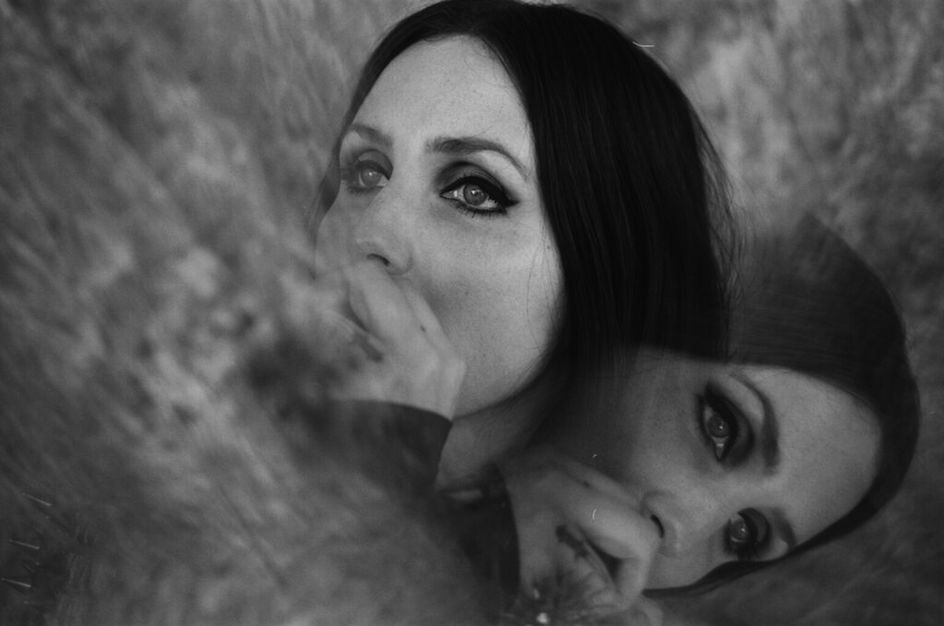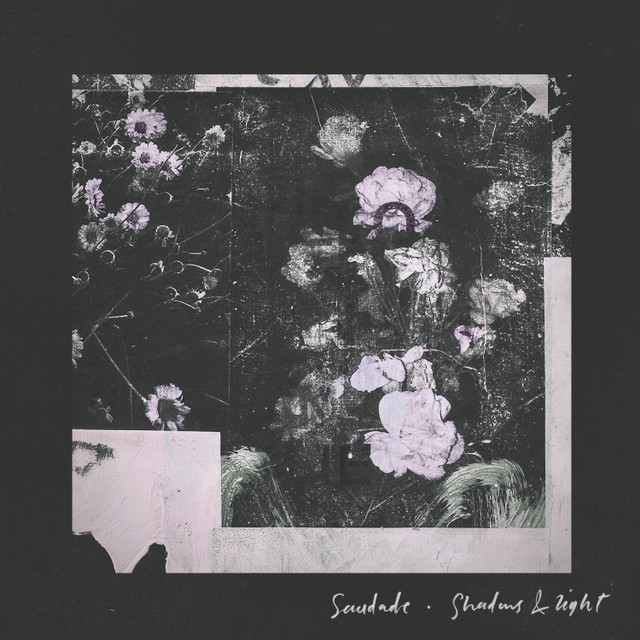The video for “Carrion Flowers,” a shivering dirge that opens Chelsea Wolfe’s recently released fourth album, Abyss, like the beast slouching towards Bethlehem, is nightmarish. Black oil leaks out of tree bark, Wolfe’s eyes and mouth crackle with white lightning, and the camera pans over abandoned farmhouses lit from behind as though by a nuclear mushroom cloud. It’s not hard to believe such hair-raising images came from the California-born and -bred musician, who has suffered much of her life from sleep paralysis, a terrifying condition in which the mind half-wakes up — often hallucinating shadowy figures left over from the previous night’s slumber — while the body remains immovable. But when she’s presented with this potential connection, Wolfe very politely says that’s not the case at all, actually. In fact, she says, “I almost asked my friend, who wrote the bio, to take out that out of the finished version” — for fear that journalists (such as this one) would latch onto it.
Now that she’s living by herself about 90 minutes north of Los Angeles’ madding crowds of automobiles and the golden-limbed people who drive them, Wolfe’s sleep has settled, along with the rest of her life. With the massive, misty woods of Northern California standing between the 31-year-old and the city she used to call home — and with a nearby biker bar to hang at when she wants to watch TV or enjoy the company of other locals — she’s started writing again, but this time in a separate room rather than in her bed, and without a population of ten million people to distract her. Sipping on a Moscow mule at downtown L.A. watering hole Tony’s Bar, close to her former practice space, Wolfe tells me that Abyss was also recorded outside city limits, at the studio of producer John Congleton (Angel Olsen, Lower Dens) in Dallas, Texas last year.
“Usually we’re a pretty self-produced band,” she says in an email exchange later. “We work out demos and parts well before we step into the studio, and it was no different this time, but we wanted to bring in an outside influence for this record and John was on our mind already. So when he reached out to us, it felt something like fate. It was important to me to keep this album raw and heavy, and John pushed it even further in that direction.”
The decision to smolder even more fiercely than on her previous albums was also partially inspired by Wolfe’s stint on tour last spring opening for Eels, following her 2012 album, Unknown Rooms: A Collection of Acoustic Songs. “[Performing] was really hard for me,” says Wolfe, who has always struggled with stage fright, an affliction she used to mediate by wearing veils and other cloth coverings onstage. At one point she recalls crying while sitting onstage, strumming her guitar in the spotlight, because she was feeling so vulnerable without her usual wall of noise. After that, she thought “f—k it,” and invited the rest of her band to join her for the next performance, the lot of them screeching loud enough to rattle a dungeon’s iron bars. The Sacramento native swathes herself in protective layers of sound for two reasons: to keep at bay her terror at singing in front of a live audience; and to shield her from the emotions of those around her, which affect her so much she believes that’s why she’s been having such trouble sleeping.
By this point her stage fright is mostly a thing of the past, although she admits her fascination with fashion “can be a form of armor on the road, for sure,” she emails me later. Wolfe is partial to dark fabrics and lipstick and horsehair bracelets so long they touch the ground. “The ritual of getting dressed for a show is important. You start to get centered and focused on what you’re there for and it always helps if you’re wearing something that is special to you or makes you feel good,” she writes. As for her other great struggle, even as she shies away from the notion that her sleep paralysis is the axis around which her new album revolves, Wolfe has written verses that nonetheless read quite personal: “I’m so tired, I’m so tired / Dragged out in the weather / Dragged out in the madness / Dragged out in your loneliness” on “Dragged Out” would seem to refer to the effects of severely disrupted slumber. It’s a ways from how she started playing music nearly two decades ago, with her two sisters, each of them pretending to be famous singers in front of a Camcorder with names that started with Z — aliases she conveniently can’t remember now. “That’s a scoop,” she says, laughing. Since then Wolfe has been intermittently taking voice lessons (“I should probably be doing it more regularly,” she admits), honing her howl so that now it purrs and gasps mellifluously, giving even more emotional heft to her songs.
Mostly, though, she’s still focused on telling others’ stories. “Color of Blood,” which smokes at its edges as a deep, rattling hum of guitar feedback burns throughout, is a cover of fellow Angeleno and doom-y singer-songwriter Jesse K. Phillips’ “Arteries,” a Swans-like odyssey he released in 2014. “I gave it new lyrics and melody the first time I heard it, then asked him to let me cover it,” says Wolfe. “I’m glad he obliged. I love the feeling of the song and it was important for me to include it.” Elsewhere on Abyss, she tackles news items: The ocean floor-dredging riffs on “Iron Moon” are nearly as painful as the suicidal thoughts plaguing the real-life factory worker on which the song is based, much as 2013’s “The Waves Have Come” was inspired by the Japanese tsunami two years prior. “The world is pretty f—ked up and sometimes I’m trying to confront it and sometimes I’m trying to escape from it, giving stories an alternate, more idealistic ending,” she says.
Looking out over the Los Angeles “River” — a cement pipeline with a trickle of water where movie scenes are often filmed — she points out her old studio, a large building with big, empty panes of glass in the windows that glint in the setting sun. “That’s my old practice space,” she says, nodding and squinting behind her sunglasses. “Yep. That’s about all there is to it.” So we watch a car chase being filmed in the man-made ravine below us, egging on the stunt driver popping wheelies over and over again. “This place is actually pretty cool,” she admits. But nostalgia is fleeting, and tomorrow she’ll head back up north, where solitude among her guitars, potential future songs, and a good night’s sleep awaits.





